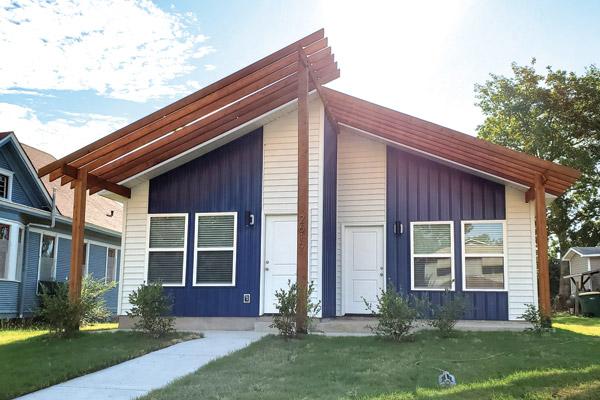
WASHINGTON — For years, Dominican Sister Donna Markham, president and CEO of Catholic Charities USA, has said it’s a scandal that millions of American families are struggling to find a stable place to live.
She knows how housing costs are soaring, forcing families and individuals to cut back on other necessities — food, health care, clothing, school needs and even utilities — so they can keep a roof over their head.
The struggle continues daily in rural, suburban and urban communities across the country, Sister Markham said during a program planned by the Opportunity Starts at Home campaign at the National Press Club Jan. 16.
“We need to acknowledge sadly that we’ve not done all that we could to meet the basic moral test of attending to the needs of poor people and their children to live safely and securely in a home and have a pathway out of extreme poverty,” Sister Markham said as one of program’s four panelists.
“We’ve got a crisis on our hands and what are we doing about it?” she said.
Catholic Charities USA is one of 20 organizations that are part of the campaign in a nationwide push to call attention to the massive shortfall of affordable housing. The coalition is calling on the federal government to set policy priorities and incentivize and coordinate state and local efforts to address the crisis.
The work largely focuses on the idea that stabilizing the lives of people is key to economic opportunity, good health and good performance in school by children without the threat of homelessness looming.
Dr. Megan Sandel, principal investigator with Children’s Health Watch and co-director of the Grow Clinic at Boston Medical Center, told the audience that data gathered from 70,000 families during the last two decades in Baltimore, Boston, Minneapolis, Philadelphia and Little Rock, show that stable housing can make a difference in virtually every aspect of people’s lives.
“What our research said over and over is that a stable, decent, affordable home is a prescription for good health,” Sandel explained. “What we know is that it’s just not about being homeless. It’s about not having to move frequently and not falling behind on rent. That is really where we’re going to see the biggest health impact over a lifetime.”
Race plays a major factor in household stability, said Irma Esparza Diggs, senior executive and director, federal advocacy with the National League of Cities. African American and Hispanic households as well as those headed by women are disproportionately affected by the lack of safe affordable housing, she explained.
“The reality is that we are living with the consequences of historic and often times intentional discriminatory housing policies, like redlining and racial isolation,” Diggs said. “Quite frankly if you are a student of how we got here, you realize the decades of public policy that (have) been intentionally segregating communities.”
The result, she said, is that cities in particular are struggling to address housing challenges without federal assistance.
Please read our Comments Policy before posting.
Article comments powered by Disqus Jericho Way blesses 12th home, closer to 13 houses goal
Jericho Way blesses 12th home, closer to 13 houses goal
 Homeless center's new director puts less fortunate first
Homeless center's new director puts less fortunate first
 Services to LR homeless back on track, organizers say
Services to LR homeless back on track, organizers say
 Catholics figure out ways to keep helping those in need
Catholics figure out ways to keep helping those in need
 Clinic for Little Rock homeless moves in to Jericho Way
Clinic for Little Rock homeless moves in to Jericho Way
 Don’t let misconceptions cause faith to waver
Don’t let misconceptions cause faith to waver
 Seniors, whatever storms may come, Jesus will be there
Seniors, whatever storms may come, Jesus will be there
 Studio 3:16 offers new approach to teaching religion
Studio 3:16 offers new approach to teaching religion
 After three decades, NLR principal plans to retire
After three decades, NLR principal plans to retire
 CHS athlete overcomes odds to reach collegiate goal
CHS athlete overcomes odds to reach collegiate goal
 St. Joseph a model of solidarity with immigrants
St. Joseph a model of solidarity with immigrants
 Two gifts after Jesus’ death: Virgin Mary and Eucharist
Two gifts after Jesus’ death: Virgin Mary and Eucharist
 Why we have an altar, and not just a communion table
Why we have an altar, and not just a communion table
 Pope: Wars should be resolved through nonviolence
Pope: Wars should be resolved through nonviolence
 Living relationship with Jesus Christ in the Eucharist
Living relationship with Jesus Christ in the Eucharist